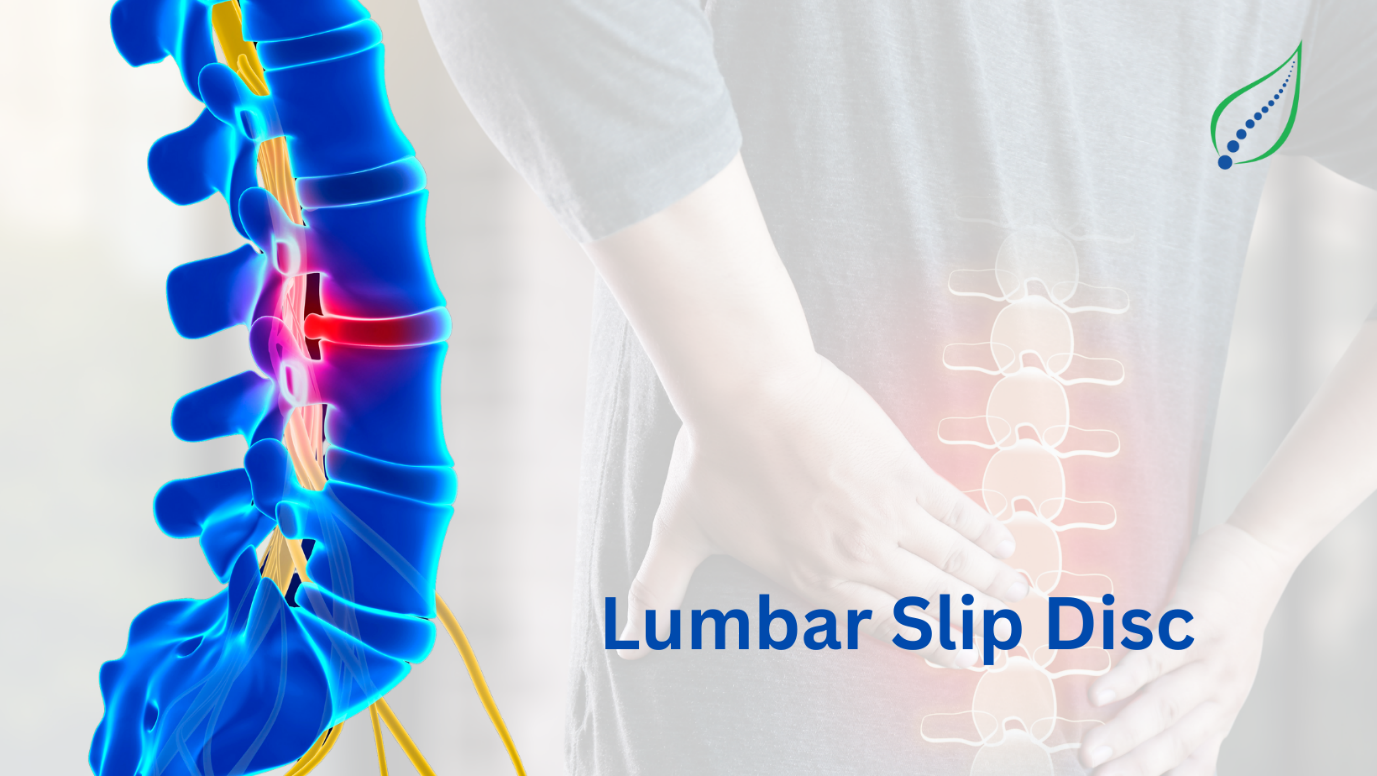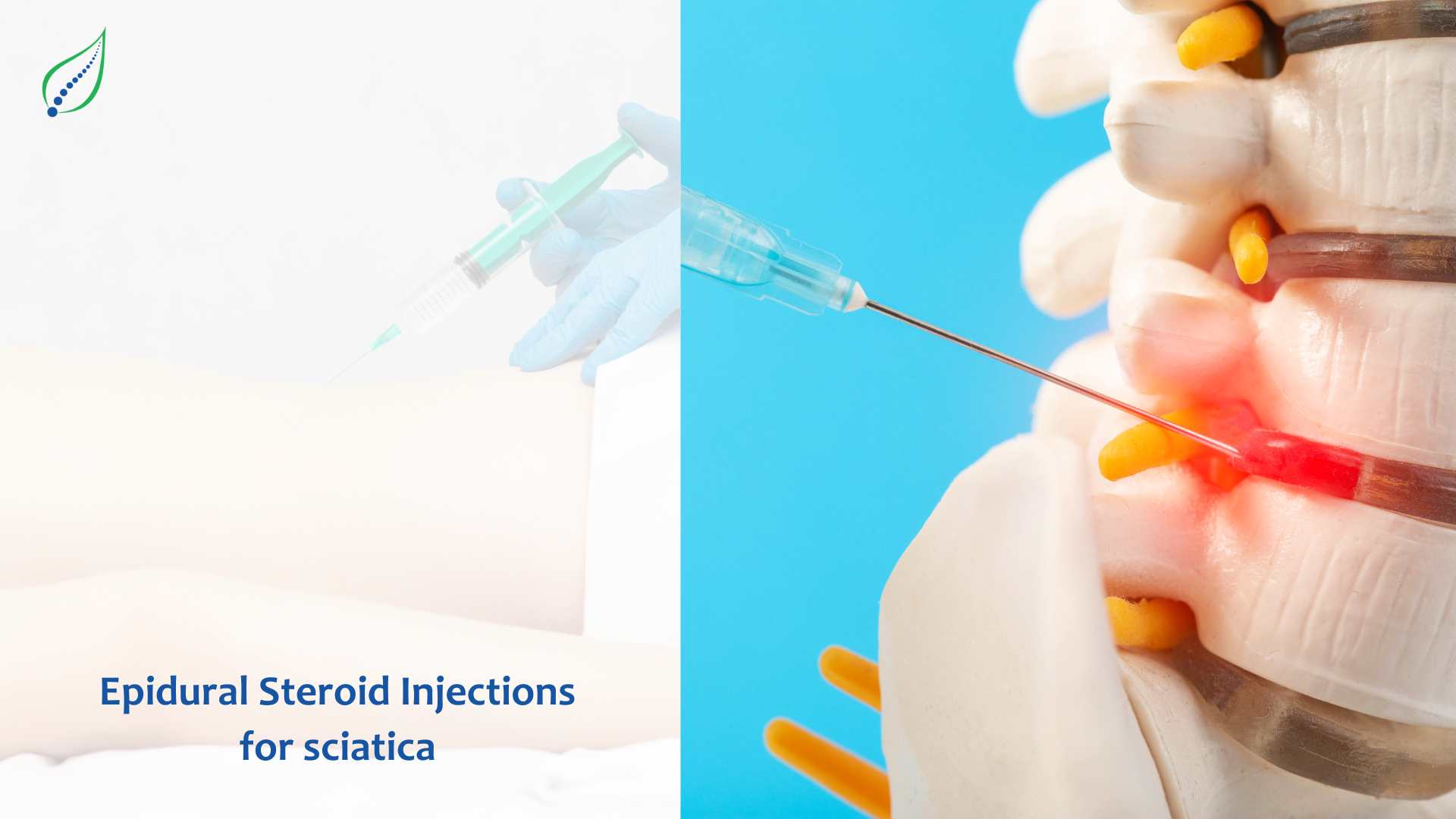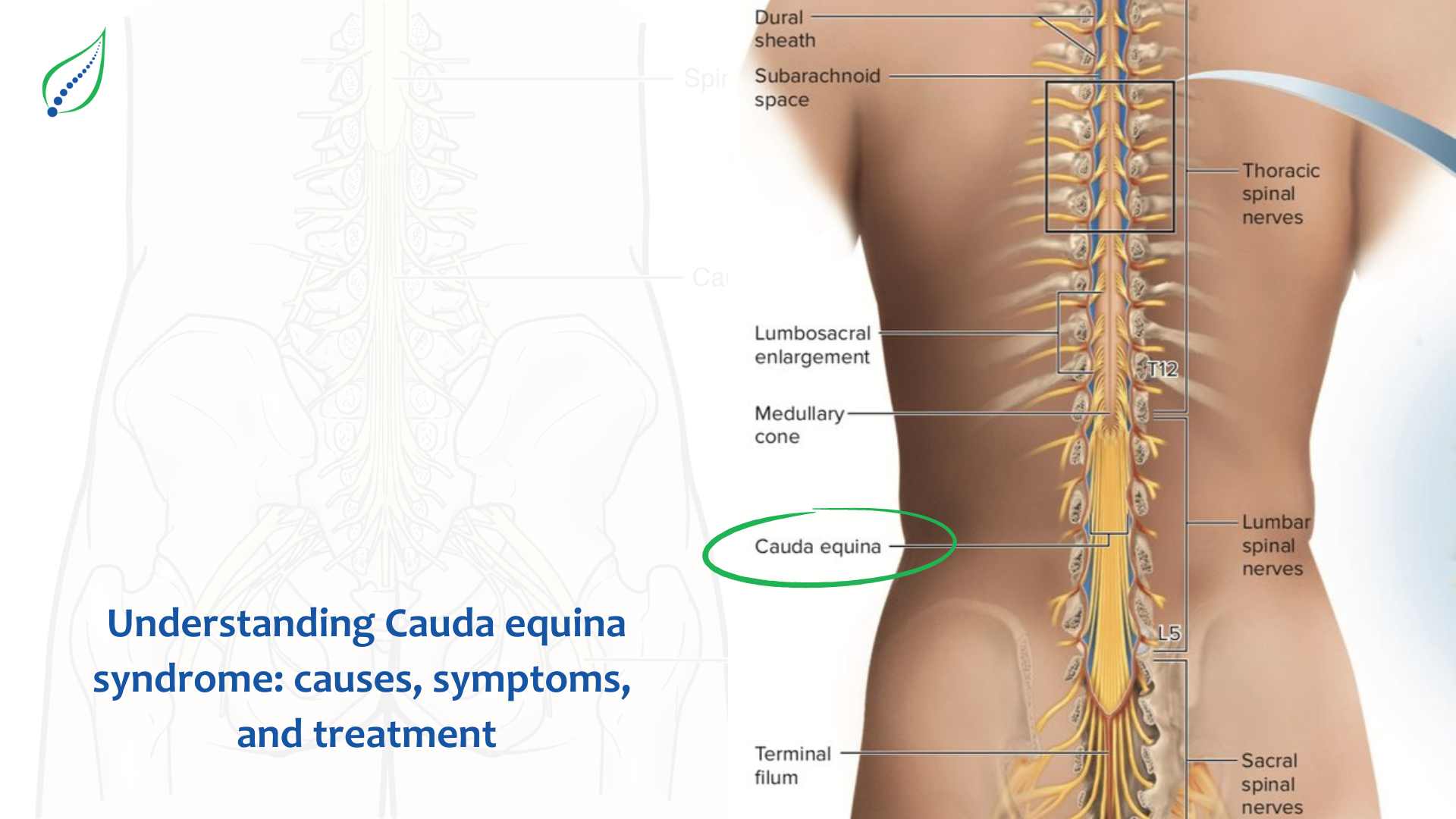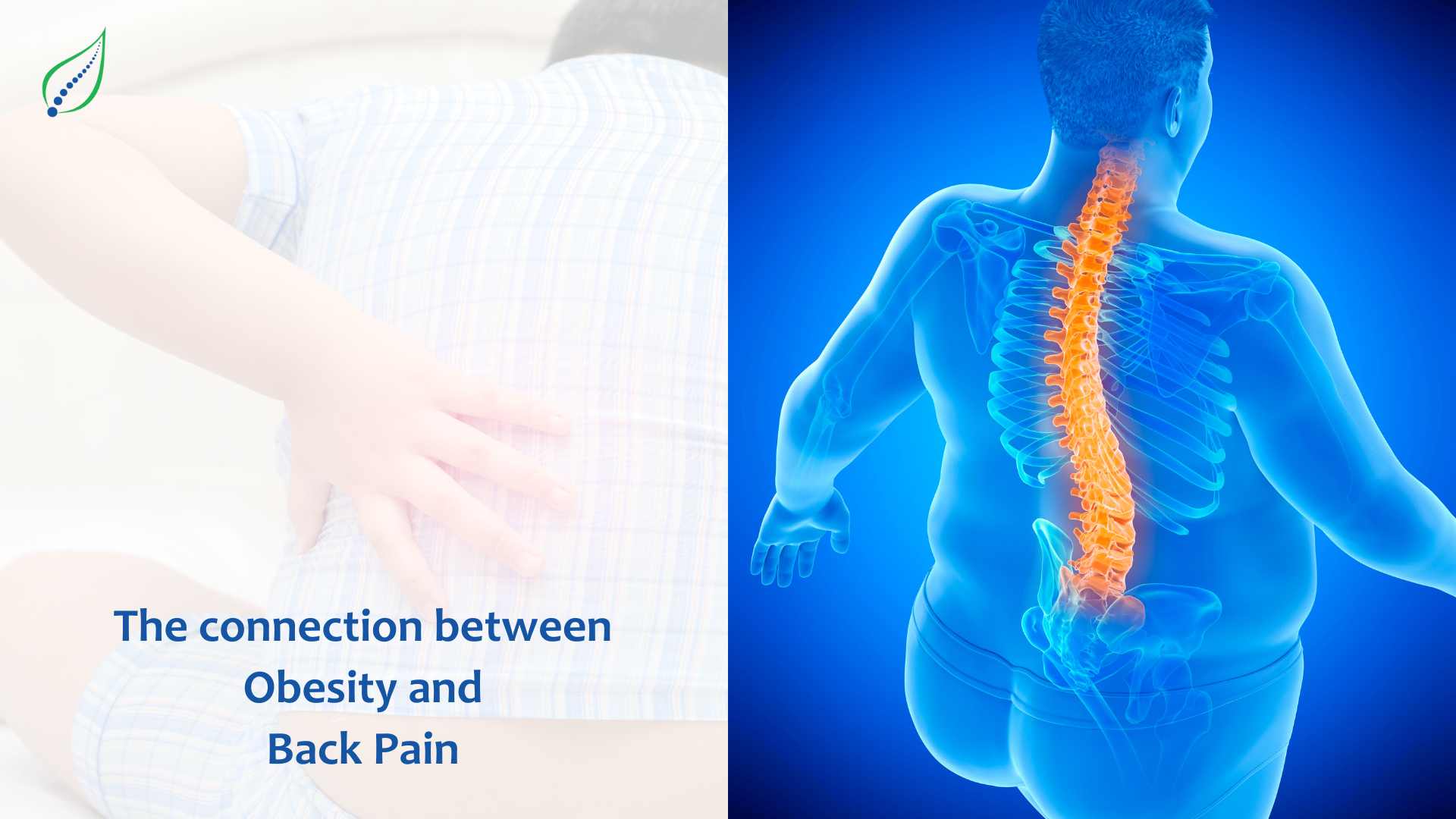Lumbar Slip Disc
Intervertebral Discs are soft, rubbery pads present between the vertebrae, which act as shock absorbers during the movement of back. Anatomically, disc consists of thick outer ring of cartilage which is called as annulus and an inner gel-like substance called as nucleus. In slipped disc, the inner soft nucleus bulges out or herniates through a weakness in the outer part i.e., annulus of the disc. This is called as disc herniation or prolapsed intervertebral disc.
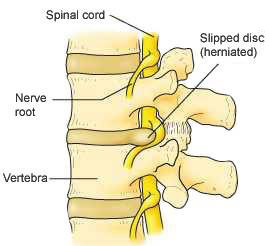
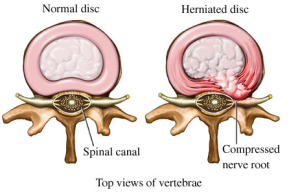
Causes of slipped disc:
- Weakness in disc : Not all people suffer from a slipped disc, though they do same type of activities. So those who suffer from disc problem may have weakness in the outer part of the disc.
- Specific activities : Activities such as sneezing, awkward bending or heavy lifting in an awkward position may give some extra pressure on the disc which can cause slipped disc. In addition to this, a job involving lots of lifting or lots of sitting such as driving or weight-bearing sports e.g., weight lifting etc. can give pressure on disc and ultimately may cause slipped disc.
- Other factors : Few factors such as smoking, obesity and increasing age may increase the risk of slipped disc.
Symptoms of Slipped disc:
- Back Pain : The pain is severe and typically comes on unexpectedly. Pain also can be present in buttocks, thigh and calf or sometimes in foot. The pain is usually relieved by lying down flat on back. And pain may get severe on moving back, coughing or sneezing.
- Numbness or tingling : Patient may have tingling/ numbness in legs or foot due to herniated disc. The affected body part depends on the affected nerve.
- Weakness : Affected nerves supplying to the muscles get weakened. So, weakness in muscles of legs, back cannot function well and hence impairment in actions is seen.
- Sciatica : The sciatic nerve is the longest nerve in the body and is made up of several smaller nerves. It goes from the back of the pelvis, through the hips and down in the legs to the feet. If herniated disc is pinching sciatic nerve, it can give to pain in the leg, hip or buttocks. This condition due to sciatic nerve is called as sciatica.
- Loss of bowel or bladder control : This is very emergency and serious condition. Due to pinching of typical nerve patient may lose control on bladder or bowel.
Diagnosis of Slipped disc:
• Physical examination : Doctor can diagnose the problem by doing few tests. Doctor can check tenderness of the back, leg and sensations of back and leg etc.
• Few more Imaging tests can be done to confirm a diagnosis of herniated disc: These tests generally include Magnetic Resonance Imaging (MRI) and Nerve Conduction Studies (NCS) and Electromyogram (EMG) can be done to diagnose the problem in disc or soft tissues related to spine.
Treatment of Slipped disc:
- Rest : Give complete rest to back for initial few days. Avoid heavy lifting or twisting back for the first few weeks after the pain starts. After 2 to 3 weeks, gradually patient can start exercises.
- Ice fomentation : In initial stage ice fomentation may help in reducing the inflammation.
- Pain killers : If patient is having mild to moderate pain, doctor may advise to take an over-the-counter pain medication, such as ibuprofen or naproxen etc.
- Nerve pain medications : Drugs such as gabapentin, pregabalin, duloxetine, tramadol etc. generally helps in relieving nerve-damage pain. Hence pain due to pinching of nerve may get relieved with these medications.
- Epidural injections : Sometimes transforaminal epidural injections into the back in the area of the herniated discs help to control pain. These injections reduce swelling around the disc and relieve many symptoms. Root block and epidural injections are found to be very useful on non-surgical management of slip disc and sciatica.
- Physiotherapy : Physiotherapist may suggest application of some machines which will relax the muscles. After these strengthening exercises can be done to strengthen the muscles.
- Complementary Therapies : In addition to the physiotherapy, yoga exercise has been found to be very helpful to cure sciatica and slip disc problems. Naturopathy, Ayurveda are also seemed to have particular role to play to manage slip disc along with exercises.
